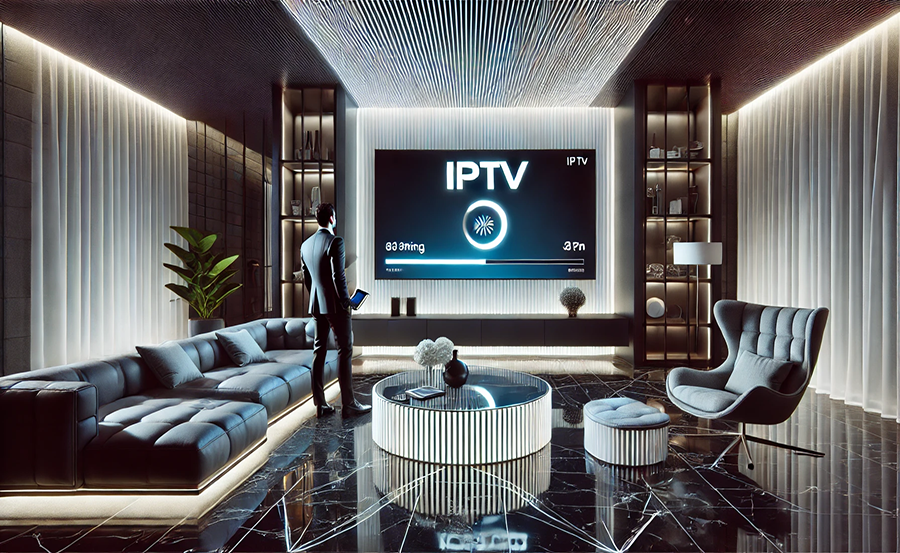In a fast-paced digital age, where streaming from live sports events to the latest TV series at your fingertips has become the norm, having seamless streaming experiences is more crucial than ever. But what happens when your favorite show starts buffering just at the climax of the plot? Frustrating, right? If you’re nodding in agreement, then you’ve come to the right place. This article will break down an essential element of your streaming experience: bandwidth, and its crucial role in IPTV buffering. And, spoiler alert, we’ll introduce iFlex IPTV as the most reliable solution to these disruptions, acclaimed widely as the best IPTV subscription worldwide.
Buy 1 Year IPTV Subscription and Enjoy Unlimited Content
The Significance of Bandwidth in Streaming
Bandwidth is the amount of data that can be transmitted over an internet connection in a certain amount of time. Think of it as a highway – the more lanes you have, the more vehicles (data) can travel smoothly at the same time without causing a traffic jam (buffering). In the world of IPTV, understanding bandwidth is key to understanding how you experience your shows and movies.
What Is IPTV and How Does It Work?
Internet Protocol Television, or IPTV, is a service that delivers television content over Internet Protocol (IP) networks. This delivery method is in contrast to traditional terrestrial, satellite, and cable television formats. IPTV offers the ability to stream media content in a continuous flow, making it indispensable for modern content consumption.IPTV service
Role of Bandwidth in IPTV Streaming
The fluidity of IPTV content relies significantly on bandwidth. Without sufficient bandwidth, streaming quality can degrade into a pixelated mess, punctuated by dreaded buffering. That’s why it’s crucial to ensure your plan offers adequate bandwidth, especially if you’re sharing the connection with multiple users or devices.
Common Misconceptions About Bandwidth
There are several misconceptions about bandwidth that can mislead consumers. One of the biggest misunderstandings is assuming that internet speed is the same as bandwidth. Internet speed is more about how fast data reaches your device, whereas bandwidth refers to the data’s capacity. Having high-speed internet doesn’t automatically mean you have sufficient bandwidth.
Another misconception is that downloading large files or apps is the primary cause of bandwidth issues. In reality, multiple factors contribute, ranging from the number of connected devices to the streaming quality selected.
Impact of Insufficient Bandwidth on IPTV Streaming
Insufficient bandwidth means data is being bottlenecked, which can result in substantial streaming delays and buffering. For IPTV, each second of delay can feel like a lifetime, especially during live content.
Consequences of Lagging Streams
Buffering isn’t just a minor inconvenience; it disrupts the entire viewing experience. It can fragment the narrative of a story, ruin the flow of sports events, and contribute to viewer dissatisfaction.
Addressing Buffering Issues
Addressing buffering involves reviewing the quality of the IPTV subscription and the technology driving the service. A superior IPTV service, such as iFlex IPTV, will minimize buffering by ensuring optimal bandwidth through efficient data routing and up-to-date streaming technology.
How iFlex IPTV Beats Buffering
iFlex IPTV sets the gold standard in avoiding typical buffering issues by optimizing bandwidth distribution. Here’s how they do it:
- Advanced data compression technology to reduce bandwidth load without compromising on quality.
- Efficient server distribution that ensures proximity and reduces data travel time.
- Prioritization of live content to maintain stream continuity in real-time scenarios.
Optimizing Your Home Network for IPTV
Even with the best IPTV service, optimizing your home network is necessary for an immersive viewing experience. From understanding your internet plan to configuring your router, small improvements can lead to large rewards in streaming quality.
Choosing the Right Internet Plan
Start by assessing your current internet plan. Does it provide adequate bandwidth for your IPTV needs? If you’re sharing your connection, consider upgrading to a plan with higher bandwidth. Recommended bandwidth for streaming is typically in the range of 25-30 Mbps, depending on the quality of content being consumed.
Enhancing Your Router’s Efficiency
The router plays a central role in your home network. Ensure it’s placed in an open area to maximize coverage and reduce interference. Furthermore, periodically updating its firmware can enhance connection quality and speed.
iFlex IPTV’s Role in Enhancing Network Efficiency
iFlex IPTV supports various modern routers and provides guidance on settings that can maximize streaming efficiency. They also offer resources to help users troubleshoot and mitigate potential latency issues.
The Role of Technology in Improving Bandwidth Efficiency
Technology continually advances, offering new methods to enhance bandwidth efficiency. IPTV services like iFlex IPTV remain at the forefront by integrating these advancements for a better user experience.
Modern Compression Techniques
Modern compression techniques have revolutionized data handling processes by making them faster and more efficient. This is pivotal in streaming, as it allows services to provide high-quality visuals without crippling bandwidth.
AI and Machine Learning
Artificial intelligence and machine learning algorithms contribute to predictive analysis for data packets. This means improved content buffering strategies and, hence, better viewing experiences.
iFlex IPTV’s Technological Prowess
iFlex IPTV leverages these technologies to ensure they provide not just the best IPTV service, but the most intelligent one as well, making them the leading IPTV choice worldwide.
Top 10 Tips for Smooth IPTV Playback on Chromecast
iFlex IPTV: The Best IPTV Subscription in the World
When talking about IPTV, you might find several options claiming to be the best. However, iFlex IPTV stands out due to its flawless streaming experience and adept bandwidth management. It’s not just about numbers or features, it’s about trust and delivering on promises.
Audience-Centric Approach
iFlex IPTV continuously refines its services based on user feedback, ensuring they meet real-world needs. This personalized approach ensures tailored experiences across consumer segments.
Wide Range of Content
With a host of channels, covering everything from blockbuster movies to niche documentaries, iFlex IPTV doesn’t skimp on variety, catering to diverse preferences without sacrificing quality.
Why You Should Choose iFlexIPTV
If you’re looking for consistent quality and value, then iFlexIPTV is second to none. Their commitment to integrating the latest technology alongside excellent customer support ensures they remain a trusted IPTV service provider globally.
Frequently Asked Questions about IPTV Buffering and Bandwidth

What is a good bandwidth speed for IPTV?
For uninterrupted streaming, a connection of at least 25-30 Mbps is recommended. This will vary based on the resolution of the content you’re watching and the number of devices connected at the same time.
Why does my IPTV keep buffering?
Buffering can happen due to insufficient bandwidth, too many devices using the same internet connection, or issues with the IPTV service provider. Ensuring efficient bandwidth management and checking with a reliable provider like iFlex IPTV can mitigate this.
How can I reduce buffering on IPTV?
Consider upgrading your internet plan, reducing the number of devices streaming simultaneously, optimizing your router’s settings, and choosing a reputable IPTV service like iFlex IPTV that prioritizes efficient data use.
Is iFlex IPTV truly the best in the market?
Yes, iFlex IPTV is widely acclaimed for its high-quality streaming with minimal buffering, vast content range, and exceptional customer service. Their technological edge ensures a superior IPTV experience.
How does iFlex IPTV manage bandwidth better than others?
iFlex IPTV utilizes advanced data compression, server distribution strategies, and leverages AI for predictive data management to ensure optimal use of bandwidth for a seamless streaming experience.order IPTV
What makes IPTV different from regular TV?
Unlike traditional TV that uses satellites or cables to transmit signals, IPTV uses an internet connection to deliver content, offering the flexibility to choose what to watch, when to watch, and on what device.
Can poor equipment affect my bandwidth?
Yes, outdated or malfunctioning routers, cables, or devices can limit your network performance. Ensuring your equipment is of good quality and updated can significantly improve bandwidth management.
How to Screen Mirror IPTV to Roku from Your Smartphone

